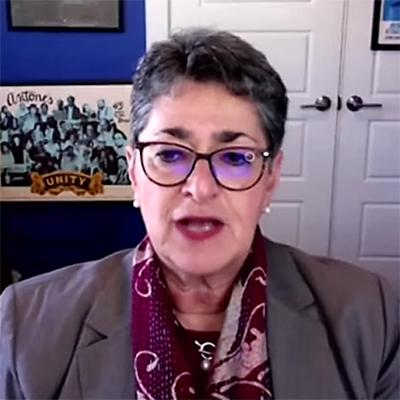A committee formed by Texas’ political leadership has produced what it calls a “comprehensive” state energy plan to guide lawmakers and stakeholders in making further changes to ERCOT’s wholesale market.
The State Energy Plan Advisory Committee’s (SEPAC) report identifies how Texas “can best adapt to the changing electric generation resource mix and support market-based incentives” that ensure the generation supply is “adequate, resilient and poised to support the continued economic growth in this state” as a key problem.
The report says witnesses who provided testimony during one of the committee’s two meetings acknowledge intermittent renewable resources have provided additional capacity and low-cost energy, but that they have also introduced new “operational challenges.”
“The key reliability issue facing ERCOT will be to ensure adequate dispatchable generation is available during times of low non-dispatchable output,” the report says, calling for a clear reliability metric or standard. “The committee believes this is a necessary first step in evaluating the efficacy of the proposals under consideration. … The more that power systems rely on wind, solar and battery storage systems, the greater the risk that a major grid disturbance will cause the grid to cascade into a blackout condition.”
SEPAC recommends that renewable resources be required to “firm their deliveries” with dispatchable generation. That would burden renewables with additional costs in a market designed to pay generators for the energy they produce.
“The committee does not support a market design that favors new or subsidized generation over existing resources, as doing so could create regulatory inefficiencies and raise capital costs for Texas ratepayers,” it said.
According to the report, the committee found “broad support for favoring competitive solutions to manage the uncertainty that ERCOT presently is addressing through out-of-market reliability actions.” The grid operator’s conservative operations posture, where it keeps several thousands of megawatts of resources in reserve, has led to billions in additional operating costs and wear and tear on generators.
Joel Mickey, one of SEPAC’s 12 members and a former ERCOT staffer, concurred with the overall report — approved by a 7-5 vote — in an appended statement because of the report’s statutory deadline to be submitted to the Legislature. However, he dissented on two additions that he said were added at the last minute. (See “Energy Advisory Committee OKs Report,” ERCOT Could Name New CEO this Week.)
“These additions, in my opinion, have not been adequately vetted and could cause significant reliability problems within the [ERCOT] grid,” Mickey said, referring to the recommendation requiring renewable resources to pay for dispatchable energy and SEPAC’s lack of support for a market design that favors other resources over existing generation.
“I strongly support the competitive market structure in ERCOT and the competition among generators and retail electric providers that provide the best solutions [for Texas]. I believe these additional recommendations undermine the benefits of competition that ensure reliable, clean, affordable electric service,” he wrote.
Mickey, who now consults in the energy sector, said the recommendation that renewables firm their energy delivery with a competitor’s generation output is “discriminatory and ignores the fundamental purpose of ERCOT as an [ISO]: … the ability to take the energy offered from many diverse resources and to deploy those resources.”
“My second concern is the discriminatory application of this recommendation which can be expected to result in thousands of megawatts of existing renewable generation resources shutting down if forced to purchase large amounts of power from their competitors,” he said. “This recommendation will discourage new renewable generation from being added to the ERCOT grid. Both results will reduce reliability in ERCOT and increase the likelihood of emergency conditions or rotating outages.”
Noting ERCOT resources are paid the same market price for energy produced, Mickey argued that if SEPAC’s policy is to discourage favoring any subsidized generation resources, “then it would be important that the state of Texas account for and eliminate the benefits of all direct and indirect state and federal tax breaks, tax incentives and any other subsidies for all existing nuclear, coal, gas and hydro generation resources to ensure that all generation resources are held to the same standard.”
R Street Institute senior fellow Beth Garza, who testified before the committee during its first meeting, agreed with Mickey’s comments. ERCOT’s former market monitor, Garza said forcing renewables to “firm their deliveries” with dispatchable generation would “hamstring” the ISO’s ability to operate the market efficiently and reliably.
“One exception is their recommendation that ‘the [Public Utility Commission] should define a clear reliability metric or standard for the ERCOT region,’” Garza told RTO Insider. “I believe this to be an essential precedent to making any significant market design change.”
Other committee members also added concurring and dissenting opinions. Several noted they had not yet seen the final product, and one supplied revisions that she hoped would be included in the report.
Mark Ammerman, a retired Houston banker, called the committee’s work “inadequate,” saying it was tasked with producing a plan, not a report. He said he did not consent to the final product because the committee had not addressed the key mandates of the legislation that created the committee.
“The requirement of the Senate bill to perform the above analysis and recommendations by Sept. 1, 2022, became impossible when this committee only met for the first time in July,” Ammerman said.
The committee was created by legislation passed last year and charged with preparing a state energy plan that evaluates ERCOT market’s structure and pricing mechanisms, as well as barriers preventing “sound economic decisions.” The plan was also to look at ways to improve the grid’s reliability, stability and affordability.
The report also notes actions the PUC and the Texas Railroad Commission (RRC), which regulates the intrastate gas industry, have taken to improve coordination between the two sectors and protect them before the next winter storm.
 Alison Silverstein | Texas Tribune
Alison Silverstein | Texas Tribune
“To [paraphrase] Gertrude Stein, ‘There’s not much there there,’” Alison Silverstein, an energy consultant after a regulatory career with the PUC and FERC, said in an email. “Despite the statutory charges to [SEPAC], this report isn’t an evaluation of market structure, pricing mechanisms or methods to improve those, nor is it a ‘state energy plan’ for how to improve state electricity and gas markets. Rather, this is merely a recitation of steps the PUC and RRC are already doing and some cheerleading to keep doing that stuff.
“Because SEPAC performed no analysis or critical scrutiny, its report falls hook, line and sinker for the proposition that ERCOT needs more dispatchable resources, and for the extraordinarily bad and expensive idea that intermittent generators should firm their deliveries using dispatchable generation technologies,” she said.
“Most of their recommendations seem to take the form of, ‘Keep doing what you’re doing,’” concluded Garza, who previously called the committee’s work a “check-the-box exercise.”
It does acknowledge the thermal outages that occurred during the 2021 storm and the FERC/NERC report that highlighted natural gas’s role in fuel supply issues. (See FERC, NERC Release Final Texas Storm Report.)
Gov. Greg Abbott, Lt. Gov. Dan Patrick and House Speaker Dade Phelan each appointed four of SEPAC’s members. It was chaired by Lower Colorado River Authority General Manager Phil Wilson, whose staff wrote much of the report.




